#On This Day in History
Text
We made it to the moon for cheaper than NASA or Russia, or any colonial power ever has! (very positive)

Take that Great Britain and screw you all colonizers and imperialism (extremely derogatory).
#meera.txt#India#chandrayaan3#history#bharat#proud to be indian#chandrayaanlaunch#brown history#current events#nasa#space travel#desiblr#being desi#desi tumblr#desi tag#this day in history#on this day in history#on this date#on this day#space program#the moon#moon landing#outer space#chandrayaan 3#chandrayaan -3#desi lgbt#desi queer#moon#happening now#colonialism mention cw
815 notes
·
View notes
Photo

**TODAY IN MUSIC & TV HISTORY”
January 6, 1973: “Schoolhouse Rock” made its premiere on ABC-TV on this day.
59 notes
·
View notes
Text


Archduchess Marie Valerie's journal entry on the death of her mother Empress Elisabeth of Austria, in 1898 (written on 21 September):
10 September. In the evening at 7.30 o'clock I returned with Maria from a tour of our poor… souper… then went with the three grown-ups to the chapel for evening prayer. Maria came with me, I did not pay much attention to her, did not notice her disturbed expression. I was no more devout than usual… Coming out into the corridor, while the children ran into their room, Maria asked me to come into my writing room, she had something to tell me. I was still thinking only of a small house cross, but when I looked at her, my heart stood still.
“The Archduke?” “No — Her Majesty.”
I don't know whether I asked further questions or whether I immediately said the word “dead”? whether she told me right there in the corridor or already in the room: “Murdered by an Italian anarchist — in the hotel in Geneva.” I don't know. My hand still trembles when I think back to that hour…
Remorse for having returned her great love so badly, and above all… more and more the unspeakable pity for him, the poor, old, sorrowful and grief-stricken father, and the probably also futile question of whether it was not too much for a poor human heart? We were on our knees, Maria and I — in the room and in the chapel. Then I sent a telegram to Franz [Archduke of Austria, Valerie's husband]. And to Papa [Emperor Franz Josef I], “I'll come to you tomorrow morning at half past six.” He himself had telegraphed to Maria that she should “teach me in a good way”.
I went in to see the children. Ella [Elisabeth, Valerie's eldest child] was not quite in bed yet … When I kissed and shook her, hardly knowing what I was doing, telling her softly: “She knows, that dear Grandmama has died,” she began to cry softly, as if she understood. God bless the good child! The boys were already in bed. Hedwig [Valerie's second daughter] was already asleep.
From one room to the other and with Maria out into the quiet starry night. — I lay down too, but sleep was out of the question. At half past one we drove away, Maria and I … arrived in Penzing at half past six in the morning. How the morning dawned over the Vienna Woods, which she loved so much, and how unspeakable fear shook me before seeing Papa again, those are hours that one is amazed to have survived.
Papa stood at the foot of the big staircase at Schönbrunn and we fell into each other's arms. That was the first time he was able to cry, he told me later. But he was still stunned then, and soon afterwards he was calm again, as he had been after Rudolf's death. We went to Sunday mass together, and then I was allowed to spend that first day with him almost without interruption, sitting next to his desk while he worked as usual, reading with him the more detailed news coming from Geneva, helping him to receive the condolence visits of the family members… Prime Minister Thun, who cried like a child — a good feeling that Papa has such servants around him. The unfortunate person who had to bring Papa the first message from Vienna to Schönbrunn was Adjutant General Count Paar with the still undetermined telegram from Irma Sztáray [Empress Elisabeth's lady-in-waiting]; “Her Majesty the Empress seriously wounded”, which was very soon followed by the second: “Her Majesty the Empress just died at 2 o'clock in the Hotel Beaurivage.”
Papa seems to have immediately thought of an assassination, although he repeatedly said: “How can one assassinate a woman who has never harmed anyone?” Papa's intention to leave for Geneva immediately was thwarted by the second telegram.
(Translation by DeepL, keep in mind that in a machine translation a lot of nuances may/did got lost)
#i can't find who maria is - but probably someone from valerie's household#archduchess marie valerie of austria#empress elisabeth of austria#franz josef i of austria#elisabeth franziska of austria countess of waldburg-zeil-hohenems#on this day in history
122 notes
·
View notes
Text








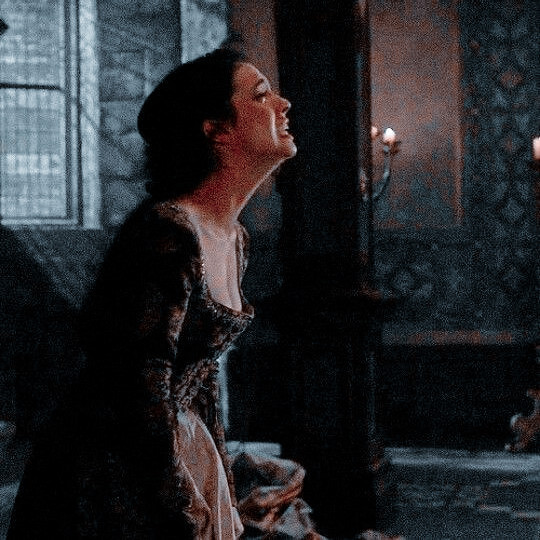
– juana i de trastámara ; infanta of spain, duchess consort of burgundy, queen of castile, aragon, valencia, mallorca, navarre, naples, sicily, sardinia and countess of barcelona was born on this day, 6th of november of 1479
#juana i de castilla#joanna of castile#juana the mad#house of trastamara#spanish history#on this day in history#weloveperiddrama#women in history#perioddramaedit#isabel tve#la corona partida#irene escolar#myedit*
54 notes
·
View notes
Text
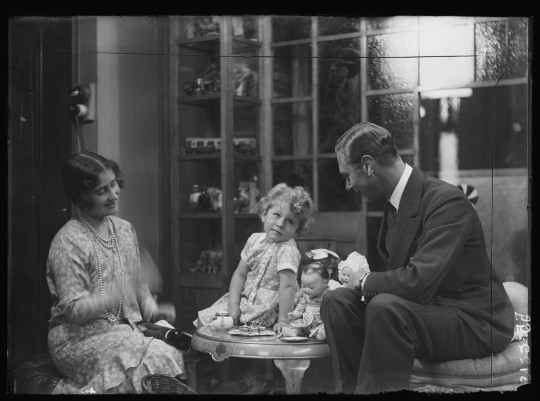
Happy Heavenly Birthday to Her Late Majesty Queen Elizabeth II. Papa Bertie's beloved 'pride', and 97 today! (b. 21/04/1926)
Thank you for your wisdom, your grace, and for your unfailing service, ma'am.
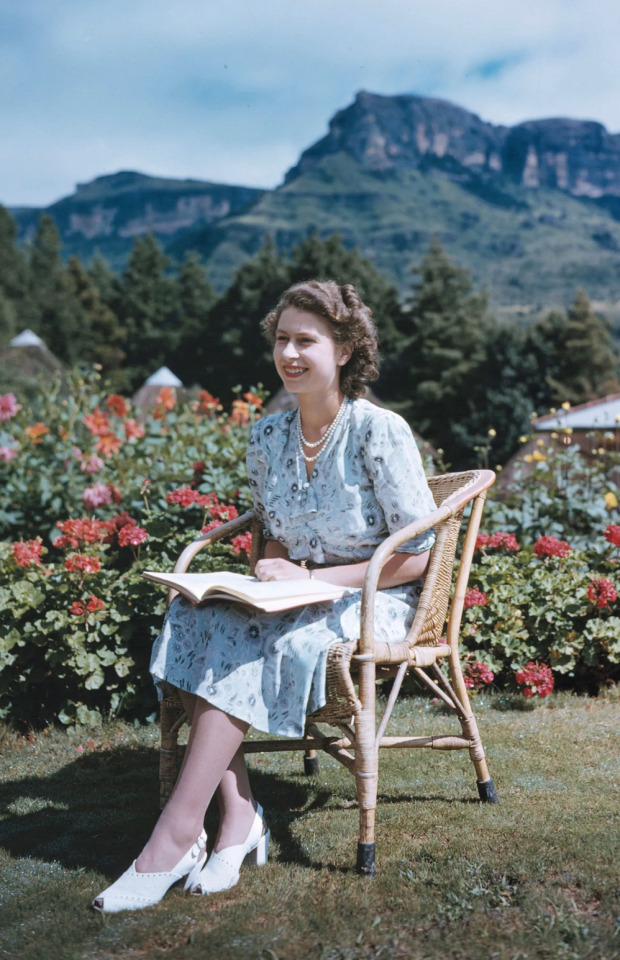

All together again as a family for your first celestial celebration :')
#queen elizabeth ii#lilibet#george vi#her majesty queen elizabeth II#king george vi#the british royal family#god save the king#the british monarchy#the monarchy#the royal family#princess margaret#prince philip#philip mountbatten#countess of snowdon#the queen mother#god save the queen#queen elizabeth the queen mother#on this day#on this day in history#royal family#royal birthday
168 notes
·
View notes
Text


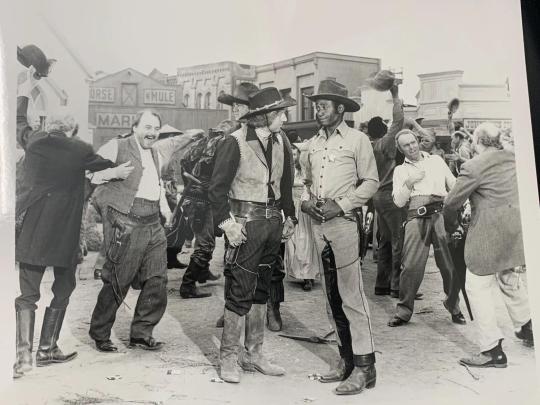
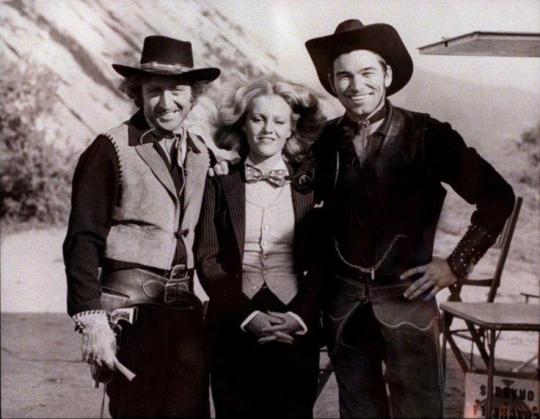






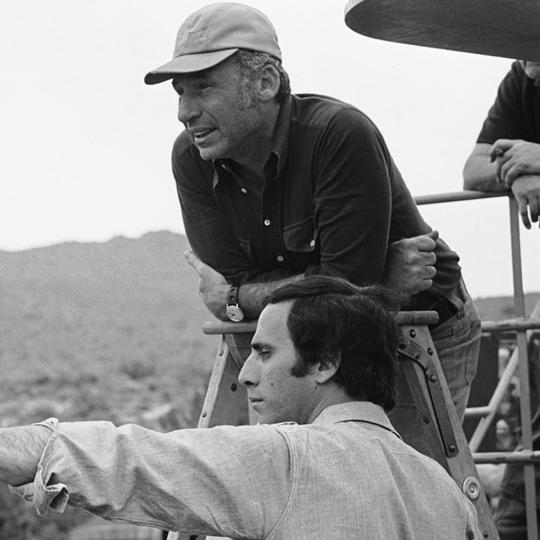







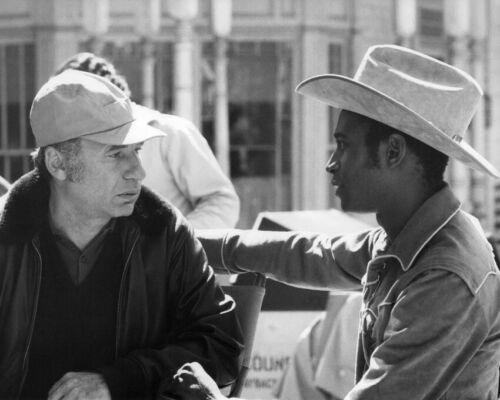

Mel Brooks' "BLAZING SADDLES", from behind the scenes in 1974 (released 50 years ago today)
#behind the scenes#movies#blazing saddles#mel brooks#gene wilder#cleavon little#western#nostalgia#funny#harvey korman#madeline kahn#1970s#1970s movies#alex karras#john hillerman#comedy#on this day in history
49 notes
·
View notes
Text
On March 17th, 1776 the Siege of Boston ended in English evacuation of the city and retreat to New York.

14 notes
·
View notes
Photo





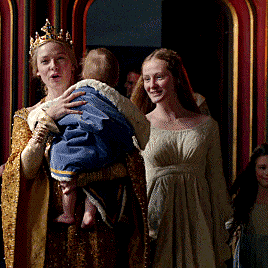

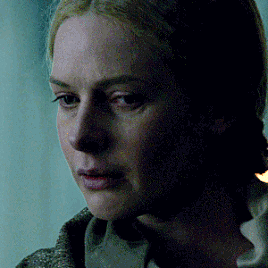
On this day in history, 8th of June 1492, Elizabeth Woodville, queen consort of Edward IV, died at Bermondsey Abbey aged about 55.
The cause of her death is not known, it is commonly suggested however that her health was failing in the last year since she made her will on the 10th of April 1492.
«Except for brief excursions, Elizabeth Wydeville spent the rest of her life in Bermondsey convent. At the age of fifty, she had retreated from the swirling, murderous world of court politics. Experience had taught her the futility of vanity and the imperative of faith, a conclusion supported by her lifelong piety…A bucolic retreat with extensive gardens, Bermondsey convent had long harboured royal guests seeking shelter from the outside world. The current abbot, John de Marlow, had officiated as a Deacon at the funeral of Edward IV and would witness Elizabeth’s will two months before her death.
The funeral procession to Windsor Castle, where Elizabeth Wydeville was buried in St George’s Chapel as requested beside her beloved husband, Edward IV, could not have contrasted more starkly with the elaborate processions of her queenly days. The scanty attendance and truncated funeral rites paled beside the elaborate ceremonies at the reburial of Richard, Duke of York – and even the funeral rites for her daughter Mary in 1482. The shabby hearse, the few mourners, the inferior tapers and the slight attention paid by church authorities discomforted the scribe who recorded the events» - “Elizabeth. England’s Slandered Queen” by Arlene Okerlund
#historyedit#history#on this day in history#elizabeth woodville#15th century#the wars of the roses#wotr#medieval#the middle ages#the white queen#twqedit#perioddramaedit#rebecca ferguson#my edit
534 notes
·
View notes
Text




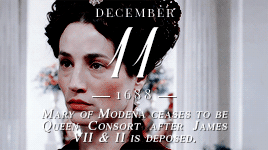
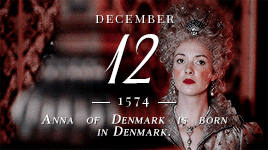





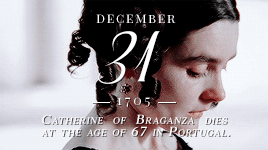
Scotland’s Ladies Month in History ✧ DECEMBER
#historyedit#history#on this day in history#scottish history#british history#english history#medieval history#women in history#kingdom of scotland#house of stewart#house of stuart#house of dunkeld#queen consorts#queens regnant#princesses#monthinhistory#ours#gifs
179 notes
·
View notes
Text
Joyeux Anniversaire!
The château was burnt, and afterwards re-constructed in 1701, as recorded in an inscription still visible on its walls. Lafayette was born there on the 6th September, 1757. It would be gratifying to discover about the place some object that might serve as a memento of his early years, but M. George himself has never been able even to ascertain in what apartment of the château his father first saw the light. No external souvenir of the General’s infancy exists there, except a portrait of him, taken at the age of nine or ten years.
Jules Germain Cloquet, Recollections of the Private Life of General Lafayette, Baldwin and Cradock, London, 1835, p. 246.
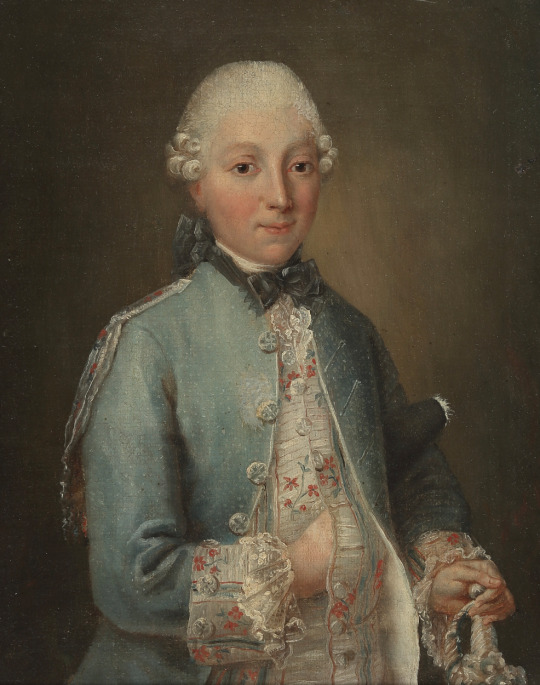
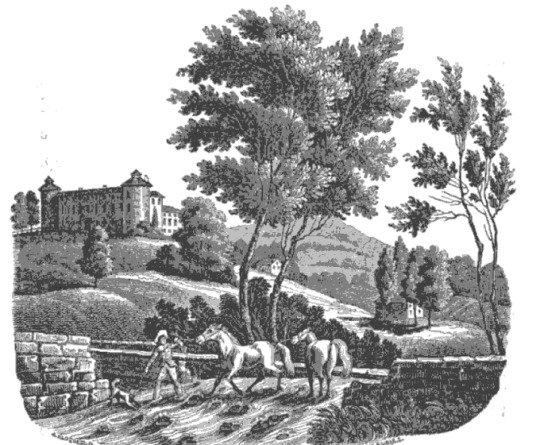
(The portrait above is probably not the one mentioned in the text, but it was painted roughly around the same time and is the oldest one I know about.)
#marquis de lafayette#la fayette#french history#history#american history#on this day in history#otdih#joyeux anniversaire#its that time of the year again!#1757#georges de la fayette
49 notes
·
View notes
Text
Skate & Surf Festival Convention Hall, Asbury Park, NJ, April 14, 2001
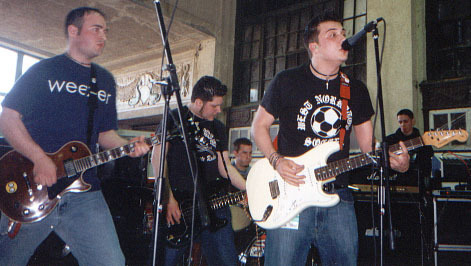


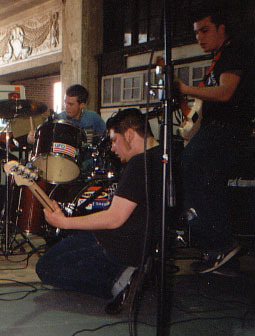
x

#on this day in history#pencey prep#frank iero#iero#mcr#my chemical romance#shaun simon#john mcquire#neil sabatino#tim hagevik#2001 pencey prep website#eyeball records#i brought you my bullets you brought me your love#heartbreak is forever#but nothing lasts forever#heartbreak in stereo#lloyd dobbler
8 notes
·
View notes
Text

190 notes
·
View notes
Text
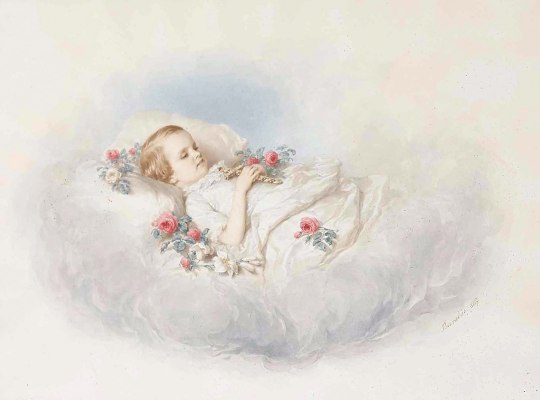
It was 10.30 a.m. and Sophie was in a critical condition. The emperor would later report that he and Elisabeth found her “debilitated but completely calm”. The night before, the dismayed parents learned from Sophie's attendants that “the poor child had [suffered] a great deal”. Based on the available data, we know that when the parents arrived, she was completely dehydrated and her kidneys were already failing. There was nothing more to be done: at 3 p.m. Sophie went into agony. Her “involuntary cries”, as Franz Joseph would later tell his mother, were signs of impending death. Her parents kept vigil at her bedside. The doctors, aja and nanny also gathered in the dying child's room. Several times, Elisabeth tried to elicit a reaction from her. She talked to her, asked her questions. Shortly before her death, she asked her again: “Baby, where is Papa?”. But she could no longer speak. In response to the question, she merely “turned her beautiful, deep eyes towards him [Franz Joseph]”. In her last minutes of life, Franz Joseph pressed a crucifix into her small hands and Elisabeth placed the cross, which had always been under her pillow when her daughters were born, under Sophie's. Shortly afterwards, her daughter stopped breathing. The “Baby” was dead.
Winkelhofer, Martina (2022). Sissi. La vera storia. Il camino della giovane imperatrice (Translation done by DeepL. Please keep in mind that in a machine translation a lot of nuance may/will be lost)
ON THIS DAY, IN 1857, ARCHDUCHESS SOPHIE FRIEDERIKE OF AUSTRIA DIED AGED TWO-YEARS-OLD. She was the eldest child of Emperor Franz Josef I of Austria and his wife Duchess Elisabeth in Bavaria. Accompanying their parents, Sophie and her younger sister Gisela went to Hungary for a two-months tour. But soon after their arrival, Gisela felt ill with fever, and a day later also did Sophie. The beginning of the tour was postponed for ten days. Gisela recovered, but Sophie worsened, and her father called upon an experienced doctor from Vienna to attend her. She was diagnosed with typhoid. After some difficult days Sophie improved and seemed out of danger, so the Imperial couple left, but only days later while in Debrecen they received an urgent message informing them that their daughter was very ill. They rushed back to Buda, where they found their daughter already at death's door.
Sophie's body was embalmed, but on the orders of her father, her internal organs weren't removed as the traditional Habsburg mortuary rites required. Her coffin was exhibited in Buda, where people was able said goodbye to her for a whole day. After the viewing, her remains were taken to the Capuchin Crypt in Vienna, the traditional burial place of the Habsburgs.
#:((((((#also i simplified it a bit for the sake of this post not being too long but elisabeth and franz josef had tried to get back to sophie befor#but they got a medical report saying that she was fine so they continued their journey for a day more before receiving the urgent message#archduke albrecht had insisted on the tour to go on despite the girls illness and elisabeth felt really guilty about it afterwards :((((#archduchess sophie of austria#empress elisabeth of austria#franz josef i of austria#house of habsburg#historian: martina winkelhofer#on this day in history
60 notes
·
View notes
Photo
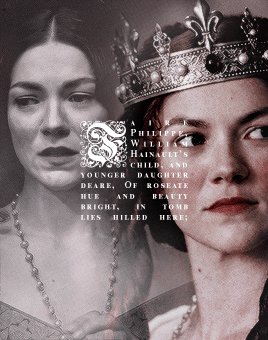

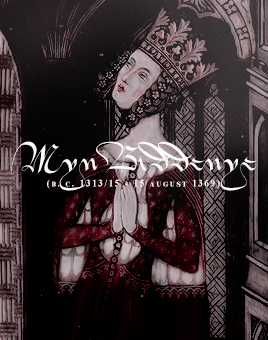
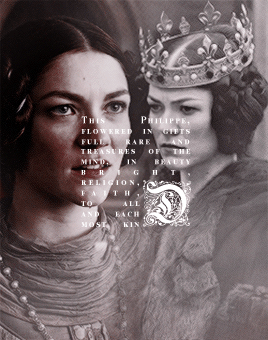
15 August 1369 ✧ Philippa of Hainault dies at around the age of 55, at Windsor.
Philippa was a pious, wise, and generous lady, a most affectionate mother, a steadfast wife, and greatly loved by her people, due to her gentleness and compassion. When faced with many trials during her life, the balance between her familial and royal duties remained stable. She was the patron of the religious community and hospital, St Katharine by the Tower, of many scholars; Queen’s College, Oxford, was founded in her honour. The queen also influenced the king to take an interest in the nation's commercial expansion, and acted briefly as his regent in 1346. For forty-one years, Philippa fulfilled her duty as queen consort, by serving the crown diligently and faithfully — amidst a turbulent and stirring time in English history — proving to be the very model of Medieval queenship.
Despite their suffering and hunger, the people of England found time to mourn their queen. The chancellor of England pointed out how ʻno Christian king or other lord in the world ever had so noble and gracious a lady for his wife (...)ʼ Jean Froissart called Philippa ʻthe most courteous, noble and liberal queen that ever reigned in her timeʼ, and had stated on an earlier occasion how the English exclaimed ʻLong live the good Philippa of Hainault [la bonne Phelippe de Hainnau], queen of England, our dear and dread lady, who brought to us and to England honour, profit, grace and tranquility.ʼ The author of the Brut wrote that Philippa was ʻa full noble and good womanʼ. He tended to refer to her as ʻthe good lady and queen.ʼ – Kathryn Warner
(The paragraphical text in the gifs is from Philippa's Latin epitaph by Froissart, which hung beside her tomb, and had been translated into English a hundred years later, before it was eventually destroyed.)
#on this day in history#our darling <3#historyedit#philippa of hainault#history#medieval history#english history#14th century#house of plantagenet#queens#our creations#our gifs
223 notes
·
View notes
Text
Celebrating the Birth of a Legend: Mark Antony!

On this day in 83 BCE, a charismatic and formidable figure entered the world - none other than Mark Antony! Born into the heart of ancient Rome, Antony would go on to shape the course of history with his military prowess, political intrigue, and passionate alliances.
Early Years of the Roman Sun: Born in Rome, Mark Antony's journey began in the midst of a city bustling with ambition and power. Little did the world know that this newborn would grow into one of Rome's most iconic and controversial figures.
Military Maestro: Antony's legacy was written on the battlefield. His military genius and bravery became the stuff of legends, earning him respect and fear alike. From the Battle of Philippi to his alliances with Cleopatra, his story unfolded in the theater of war.
Political Intrigues: Beyond the battlefield, Antony's political prowess was equally remarkable. From his alliance with Julius Caesar to the famed triumvirate, his political journey was as captivating as the epic tales of Rome.
Love and Tragedy: Antony's story was not without its share of passion and tragedy. His love affair with Cleopatra, the Queen of Egypt, added a dramatic twist to the Roman narrative, leaving an indelible mark on history.
Raise a Toast: Join us in raising a virtual toast to the birth of Mark Antony, a man whose life became an integral part of the tapestry of ancient Rome. Here's to the birth of a Roman legend!
Image: Reimagined bust of Marc Antony, inspired by his Flavian bust, coins and descriptions in ancient sources.
#mark antony#marc antony#marcus antonius#cleopatra#cleopatra vii#on this day in history#on this day#art#antony and cleopatra#rome#egypt#ptolemaic egypt#ancient rome#roman history#roman empire#roman republic#history
19 notes
·
View notes
Text

it’s that time of year again
#on this day in history#The Essex#I wish I could remember which article this screencap was from#not to say I have a favorite maritime disaster but#Essexposting
129 notes
·
View notes